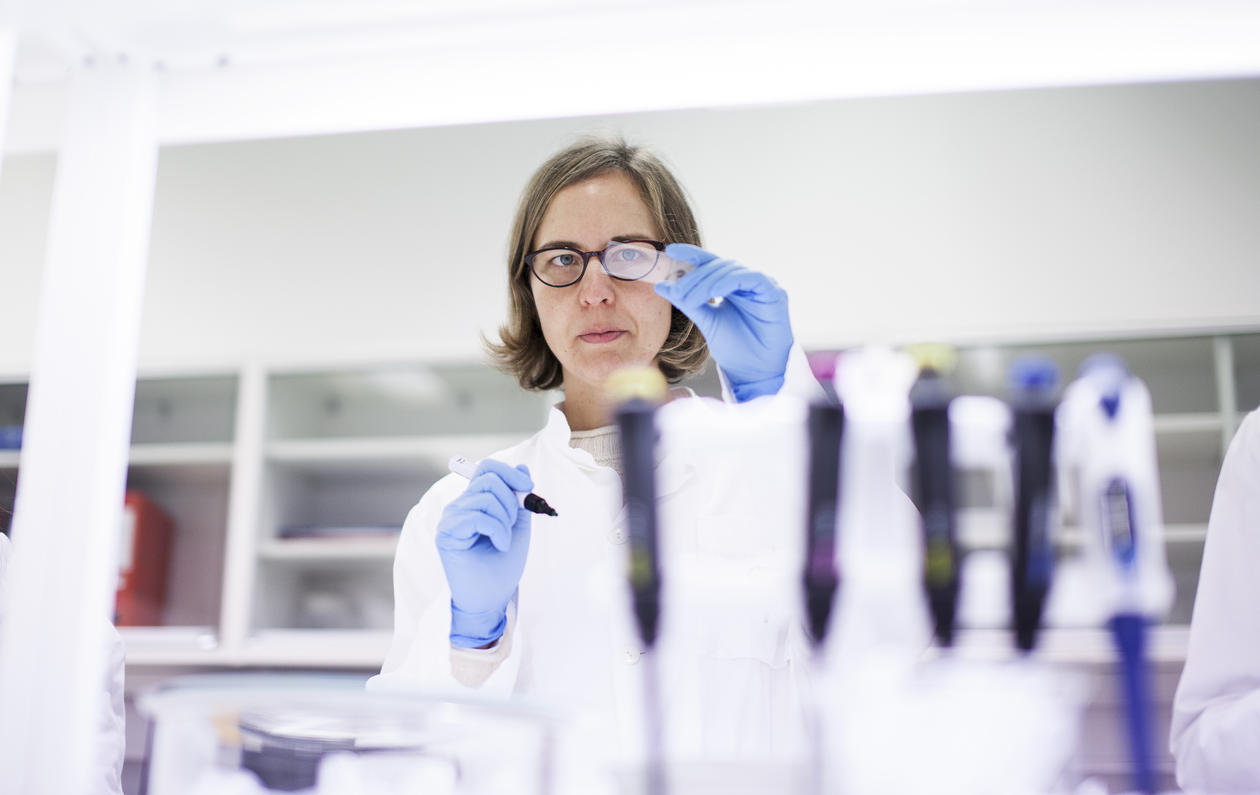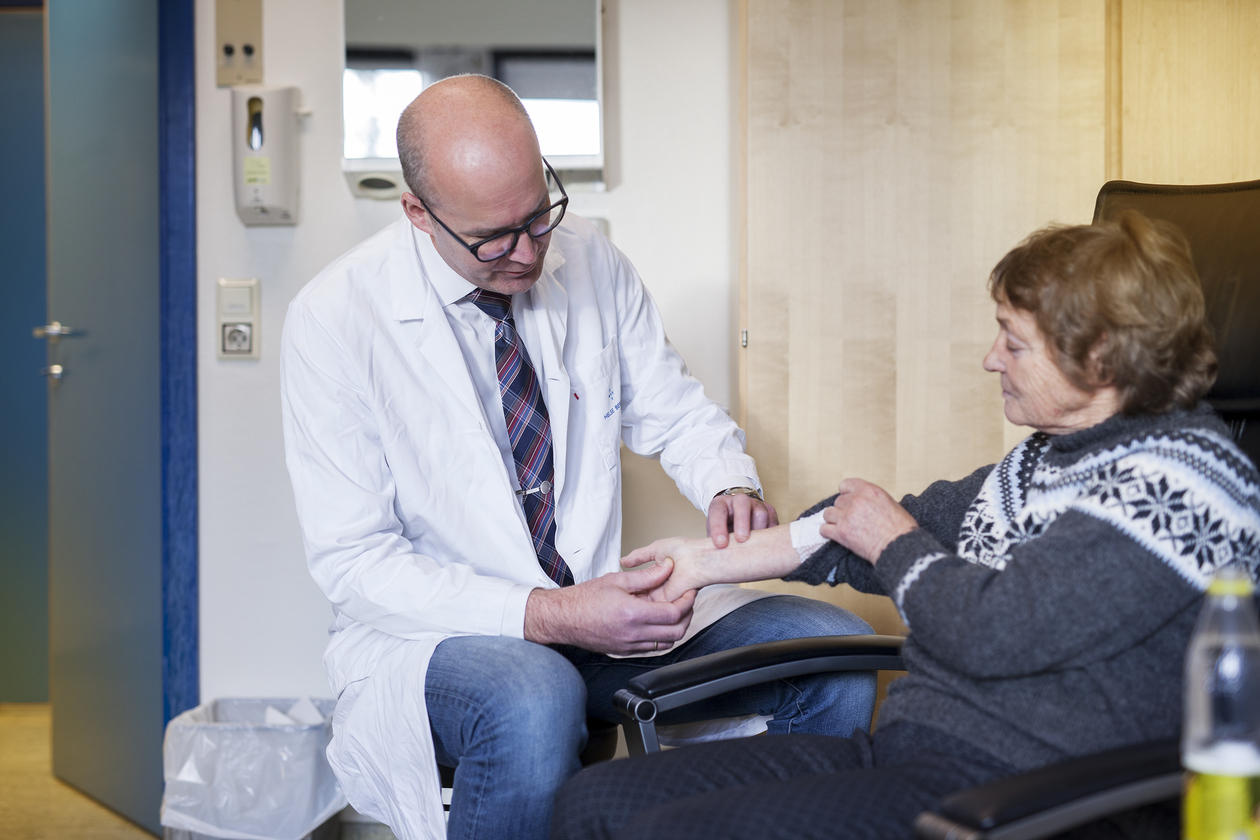Anti-Angiogenic Treatment
Dr. Straume has a background in medical oncology with special interest in cutaneous melanoma, renal cancer, and breast cancer. Straume’s research group focuses on clinical cancer research.

Hovedinnhold
Research focus
The main research goal is to identify predictive biomarkers in clinical materials. The group studies populationbased patient cohorts and clinical trial series.
Subprojects
1. Clinical trial: A phase Ib/II randomized open label study of BGB324 in combination with pembrolizumab or dabrafenib/trametinib compared to pembrolizumab or dabrafenib/ trametinib alone, in patients with melanoma.
2. Clinical trial: A national, multicenter, interventional study of ipilimumab in patients with unresectable or metastatic melanoma (IPI4); the goal is to identify predictive markers.
3. Clinical trial: Efficacy of bevacizumab monotherapy in treatment of metastatic melanoma and predictive value of angiogenic markers; currently, stress response related biomarkers are in focus.
4. Research project: Importance of physical trauma on time to recurrence after primary treatment of breast cancer; the project is based on the hypothesis that dormant micrometastases can initiate tumor growth following a systemic burst of growth factors after surgery or trauma.
Important results
1. The trial enrolled the last patient in June 2022, and further enrollment is stopped. Five regional centers included patients. After the outbreak of the COVID-19 pandemic, enrollment was significantly slowed down but was picked up again. The group is in the process of reporting on safety and efficacy as well as starting to analyze candidate predictive biomarkers for response to anti-AXL targeted therapy.
2. The IPI-4 prospective trial represents the longest reported follow-up of a real-world melanoma population treated with ipilimumab and was recently published. Results indicate that safety and efficacy are comparable to randomized phase III trials and suggest that the use of ipilimumab can be based on current cost-benefit estimates. The group has collected tissue samples from primary tumors and pre-treatment metastatic biopsies and started to analyze the material for predictive markers.
3. The group assessed the expression of proteins involved in regulation of stress response in a series of melanoma metastasis treated with bevacizumab monotherapy. β2-adrenergic signaling is a stress response mechanism that impacts numerous hallmarks of cancer. The group is the first to show a correlation between strong expression of the β2-adrenergic receptor and clinical benefit from bevacizumab in melanoma. The article is currently under review.
4. The group has demonstrated an augmented stimulating effect on relapse dynamics in patients experiencing complications in the perioperative period as well as in obese patients. The report is currently under preparation.
Future plans
In 2022, the group received grants from The Norwegian Cancer Society as well as from Helse Vest to establish infrastructure and group competence to perform state-of-the art methodologies and computational approaches to maximize the impact of biopsy samples obtained from patients participating in clinical trials and to define a new precision medicine approach to improve immunotherapy efficacy for melanoma patients. In addition, the group has started to plan new projects focusing on adaptive mutability as a universal stress response caused by cancer treatment, driving tumor cell heterogeneity and resistance.
PubMed Publications
See Straume's PubMed publication list here.

